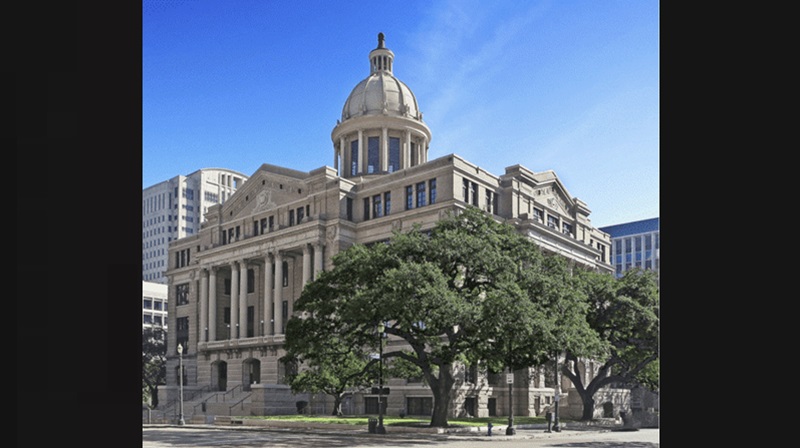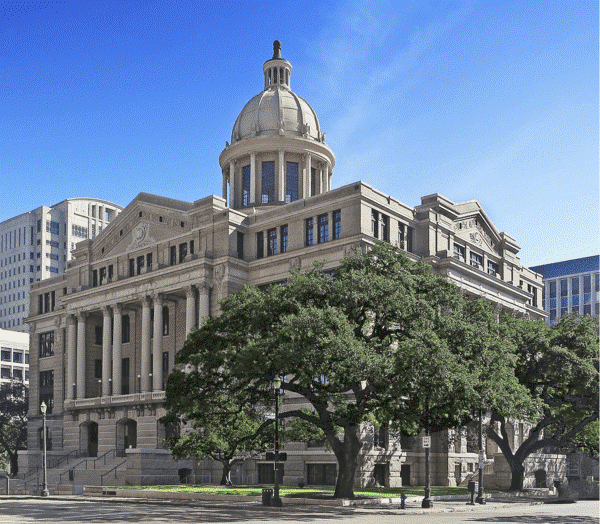
By Steve Pomper

Once again, a woke criminal justice system official, in this case, a Texas Judge Steve Duble, is citing his desire for the police to “focus on violent crime” as his justification for allowing low-level offenders to evade responsibility for their legitimate, albeit minor, crimes, as reported by Kyle McClenagan at Houston Public Media.
The judge tossed out all Class C misdemeanor (CCM) warrants, which McClenagan described as, “Class C misdemeanors are not violent, only have a maximum fine of up to $500 and are mostly made up of traffic violations such as speeding or running a red light. These low-level misdemeanors also do not have the capacity to result in any jail time.”
My intent here is not only to address this single judge’s political shell game but also the general issue of these woke officials’ narcissistic tendency to impose their extreme ideology on the public.
Tossing out an entire class of warrants is similar prosecutors who create “no-go” lists of crimes they refuse to prosecute. Or when they create “no-testify” lists of police officers prohibited from testifying for the prosecution in court, which compromises many cases and smears officers’ professional reputations.
McClenagan also wrote, “As for future warrants, [the judge] said he has not issued any warrants since taking office in 2023 and said he does not plan to do so unless absolutely necessary.”
As for the tired insincere justification, in a press release he wrote, “The recall of the old class C misdemeanor warrants should allow law enforcement to allocate more time and resources to protecting the public from violent crime.”
Since when are any of these leftist extremist criminal justice officials concerned about the rising crime, violent or otherwise? George Soros-funded officials like Racheal Rollins in Boston (now, out of office), George Gascon in LA (still, in office), and this judge use the “police resources better spent on addressing ‘violent’ crime” pretext when they tinker with the system. But this misses the point of a justice system, right? Achieving justice at every level!
A criminal’s path is most often incremental, with initial minor offenses punished with minimal penalties eventually rising to felony crimes, sometimes violent, which (should) means jail or prison. Whether major or minor crimes have been committed, the justice system exists to hold wrongdoers accountable for their wrong behavior to whatever degree.
The system will exact a penalty, which with Class C misdemeanors is a fine, as a means of punishment to correct the behavior so it’s less likely to be repeated. If no penalty is applied, the law is effectively nullified, and the offense is likely to be repeated.
This judge relies on brittle 6th, 8th, and 14th Amendment arguments, bolstered by an advisory letter issued by an observably extremist U.S. Department of Justice, Office of Associate Attorney General, Civil Rights Division [Hang on, let me catch my breath], Office of Justice Programs, and Office for Access to Justice” to arrive at his preferred interpretation.
He apparently agrees with the DOJ that certain Americans are more liable to be served Class C misdemeanor warrants than other “privileged” people, so the warrants somehow don’t reflect equal justice and lack due process. I think that’s his argument.
Doesn’t this invert equal justice? You can also see the overreach in the DOJ’s constitutional advisories. For example, the DOJ and judge agree that the 8th Amendment prohibition against “fines and fees… are grossly disproportionate to the severity of the offense.” Reportedly, the fines are between $50 and $500. This may seem like a lot, depending on one’s financial circumstances, but it hardly shocks the conscience, especially since payment plans are often available.
Also, the offender chose to violate the law, to speed, run a stop sign, or steal a bagel. This part of the equation should not be overlooked out of fairness to all the people who didn’t speed, run a stop sign, or steal a bagel. Isn’t there a risk that more people will wonder why they should obey these “minor” laws if there are little or no consequences for violating them?
Remember, a driver can run a red light or stop sign and usually nothing happens. However, violating these “minor” laws, on occasion, cause collisions that can wind up with serious injuries or fatalities. Should people become accustomed to violating these minor offenses because there is ultimately no penalty?
The judge cites a highly ideologically biased letter issued by the U.S. DOJ (referenced above), titled, “Advisement on Discriminatory Enforcement of Fees and Fines.” They remarkably find six ways a Class C misdemeanor warrant “violates” the 14th Amendment.
#7 stands out: “The Fourteenth Amendment prohibits the imposition of fines and fees in a manner that intentionally discriminates against a protected class.”
I just reread the Amendment and still can’t find any reference to a “protected class” (other than all American citizens). Instead, the Amendment seems to mandate that the criminal justice system treat all American citizens equal under the law.
That’s kind of hard to do when only some people enjoy a “protected class” status while others, by process of elimination, are in a not-protected class. Wait… wasn’t the 14th Amendment enacted to ensure equal justice—for all?
Doesn’t this also mean that only the people who follow the law and pay their fines actually suffer any consequences while those who are delinquent escape culpability?
Oh, the judge says they’ll still pursue the violators in other ways to collect the fines. But tell me how diligently you think this judge will work to collect those debts after he so cavalierly flushed the warrants (issued specifically to collect those fines) down the toilet—essentially, intentionally making collection more difficult for his office?
A court may issue a misdemeanor warrant after a violator fails to pay the fine (from a traffic or other citation) or fails to appear in court. The warrant is a further consequence of the violator’s committing and then ignoring the original minor offense. Running a stop sign may be a “minor” offense? But failing to pay a court-ordered fine or failing to appear in court seems a bit more than minor.
It seems the only CCM offenders held responsible in this judge’s jurisdiction are those who choose to do the right thing and pay their fines in full or arrange a payment schedule with the court. What does the cancelling of these warrants do to the public’s confidence in the justice system? It further erodes it. How can it not?
Let’s also not overlook that even violent criminals commit minor crimes, which can result in CCM warrants. I can’t tell you the number of people with misdemeanor warrants, stopped for something minor, who cops learn are also wanted for major felony crimes, some of them violent.
Make a difference. Support the NPA.